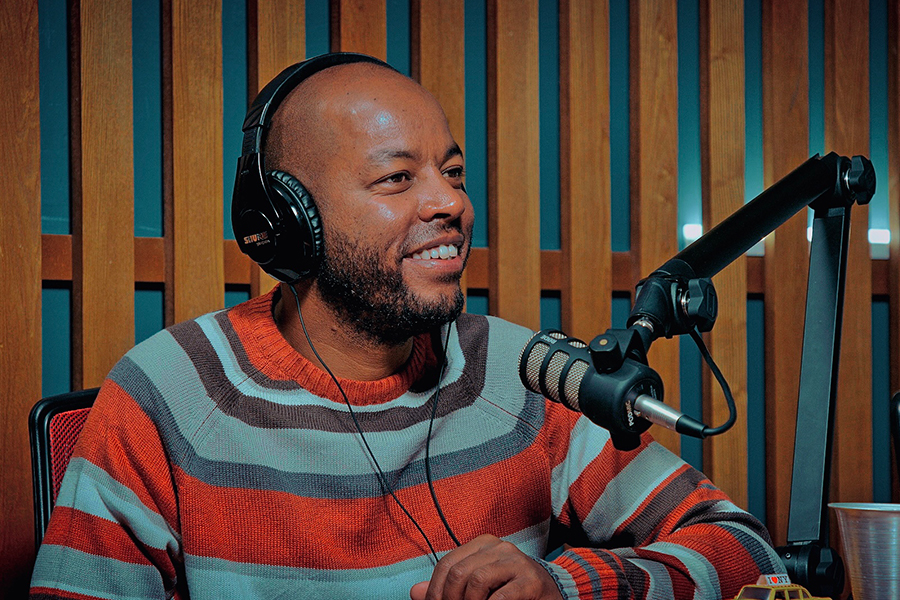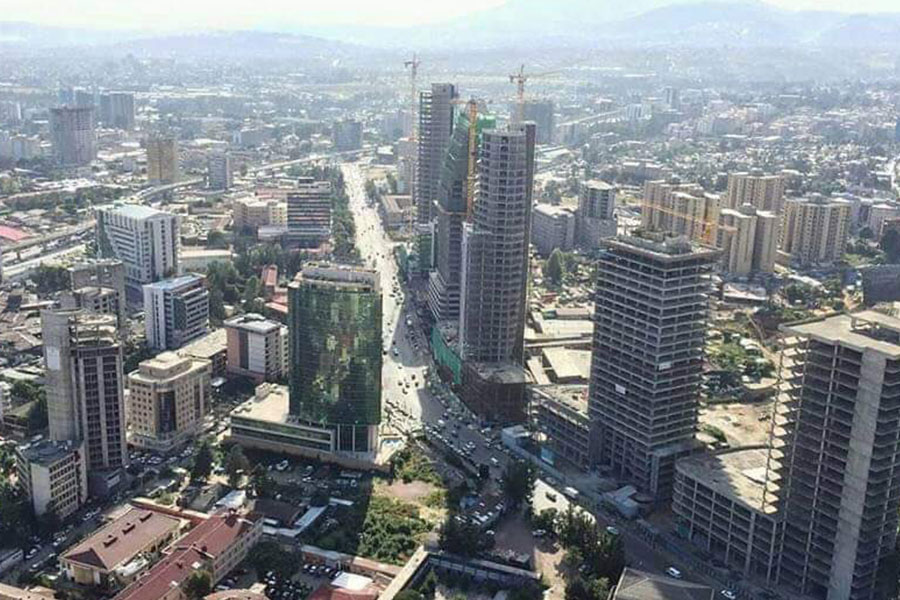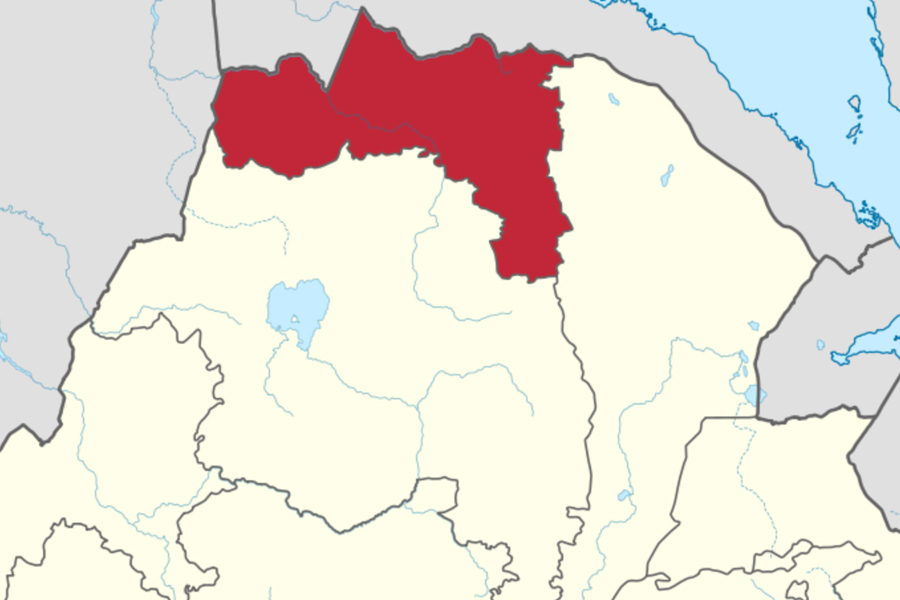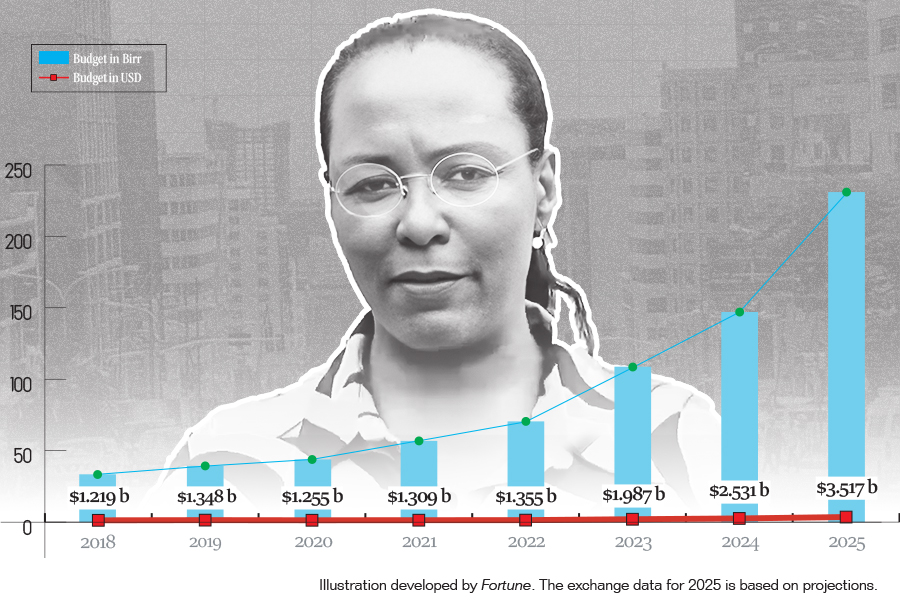
Exclusive Interviews | Oct 15,2022
Jul 6 , 2019.
The events of June 22, 2019, have wholly altered the country’s mood. The high expectations and hope following the changes in the spring of 2018 are being replaced by doubt and apprehension, bordering on collective depression, if not despair.
Whether experienced by an individual or a country, despair is a dangerous state of mind. In these times, wisdom and care are required of leadership and the balancing of priorities.
Moving one piece of the puzzle could have a domino effect threatening to bring down the whole edifice. Great calm, foresight and tactical flexibility are required. A leadership with strategic priorities that infuses a despairing public with hope and encouragement is essential. Faith in the rightness of the cause and spreading the belief in the inevitability of success is critical.
For a moment, Ethiopia seemed destined for high hopes under a young reformist leader capable of reversing the existential threats that loomed over the country. This is not the first instance of national malaise in our country. We have had leaders in our past that faced the burden of history.
Many among the current generation remember Emperor Haile Selassie as an aging old monarch, but in his earlier years, he was a young reformist leader.
After consolidating his power in the mid-1920s following the death of Empress Zewditu, the conservative daughter of Menelik II, he inherited a demoralised and paralysed country plagued by a 17-year power struggle that ensued after the death of the powerful Monarch, Menelik II. He quickly introduced a series of reforms, including an effort to abolish slavery, spread education and, most revolutionarily of all, the introduction of Ethiopia’s first written constitution.
It was a time of renaissance, and the country was waking up from its slumber, looking forward to what was seemingly a modern and bright future. But unfortunately, that turned out to be short-lived, as the reforms were interrupted by the Fascist invasion of 1935.
The invasion could not have come at a worse time, as it cut short the budding reforms of a traditional society that was attempting to leap into modern statehood.
Emperor Haile Sellasie fled to England after the defeat of his army by the Italians, and all hopes of reform seemed to have vanished. The Emperor had lost the aura of invincibility at home even as he was leading a mostly fruitless diplomatic campaign against the fascists in Europe.
Dark days had descended over the homeland as many battles were lost, and the Italians eventually entered the capital. There seemed to be no hope for Ethiopia on the horizon.
But out of the ashes of defeat and against all odds a patriotic movement of resistance emerged against the Italians. The resistance drew upon almost all sectors of Ethiopian society: the peasantry, the nobility, the clergy, intellectuals, women and the youth alike from all the provinces of the Empire. The Ethiopian patriots blunted the fascist forces leading to their eventual defeat in 1940.
Strategic leadership is indeed critical for a country facing a crisis. But in moments of an existential threat to a state, the involvement of a broad-based community effort is essential. The absence of such a broad movement today, when the Ethiopian state is gasping for air and is being strangulated by forces of polarisation, is nothing short of puzzling.
Where are the elders, the wise men and women of this country to be found today? Where are the leaders of our communities - men and women of unimpeachable character, clout and leadership to that can infuse moderation into an increasingly radicalised population? Is there a collective cognitive dissonance going on? Could there be a misreading of the situation the country finds itself in?
At the risk of sounding alarmist, a careful reading of the political and social situation is deeply worrying. For anyone keen to pay attention to development in Ethiopia today, it is clear that the forces of polarisation are consolidating. They are dominating the political discourse in the country. They are recruiting disaffected youth with alarming numbers and speed. They are mobilising and arming.
The young population, with its limited grasp of history and intolerance of divergent ideas, is chomping at the bit, primed for action. All breeds of nationalists have camped in their different islands of truth with narratives that are untested in the marketplace of ideas. With power-hungry leaders and activists feeding their respective young followers, a constant diet of partisan propaganda, mostly consisting of victim Olympics, is giving them unrealistic self-importance.
Not seeing the rapid transition from polarisation to radicalisation is unfathomable. It will have disastrous consequences. In a state that is faced with such existential threats, the absence of voices of convergence in Ethiopia’s society is indeed baffling.
Why do the forces of polarisation dominate the political narrative? Where are the notable and eminent persons of Ethiopia with the courage to confront and counter this overwhelming narrative hovering over the skies of the country? Why have they chosen silence against expounding an alternate discourse of convergence?
There is an acute need today for the forces of convergence in this country to voluntarily come together and have a discussion on the state of affairs. Even more importantly, they should come out with a manifesto countering the polarisation narrative. It may be argued that this may only be symbolic. It is in many ways, and it should be.
But in the current state of affairs, even the simplest symbolic gesture from a group of people with the background of a cross-section of Ethiopia’s society, divergent political views, ethnic identities and religious affiliation sitting together for a reasonable conversation is a big step in diffusing the brewing tension developing due to the violent contestations of power by the various forces of polarisation. The danger is the abdication of this duty by the notables and prominent personalities of this country.
The voices of convergence that know the history of this country surviving the odds as a result of coming together when faced with existential threats should be stepping up before the ongoing polarisation turns to radicalisation. That is a frightening prospect too scary to contemplate.
PUBLISHED ON
Jul 06,2019 [ VOL
20 , NO
1001]

Exclusive Interviews | Oct 15,2022

My Opinion | Aug 03,2019

Featured | Sep 08,2024

Agenda | Oct 16,2021

Fortune News | Nov 21,2020

Fortune News | Jul 21,2024

Fortune News | May 15,2021

Commentaries | Nov 09,2024

Commentaries | Jan 18,2020


My Opinion | 131981 Views | Aug 14,2021

My Opinion | 128369 Views | Aug 21,2021

My Opinion | 126307 Views | Sep 10,2021

My Opinion | 123925 Views | Aug 07,2021

Dec 22 , 2024 . By TIZITA SHEWAFERAW
Charged with transforming colossal state-owned enterprises into modern and competitiv...

Aug 18 , 2024 . By AKSAH ITALO
Although predictable Yonas Zerihun's job in the ride-hailing service is not immune to...

Jul 28 , 2024 . By TIZITA SHEWAFERAW
Unhabitual, perhaps too many, Samuel Gebreyohannes, 38, used to occasionally enjoy a couple of beers at breakfast. However, he recently swit...

Jul 13 , 2024 . By AKSAH ITALO
Investors who rely on tractors, trucks, and field vehicles for commuting, transporting commodities, and f...

Jul 6 , 2025 . By BEZAWIT HULUAGER
The federal legislature gave Prime Minister Abiy Ahmed (PhD) what he wanted: a 1.9 tr...

Jul 6 , 2025 . By YITBAREK GETACHEW
In a city rising skyward at breakneck speed, a reckoning has arrived. Authorities in...

Jul 6 , 2025 . By NAHOM AYELE
A landmark directive from the Ministry of Finance signals a paradigm shift in the cou...

Jul 6 , 2025 . By NAHOM AYELE
Awash Bank has announced plans to establish a dedicated investment banking subsidiary...